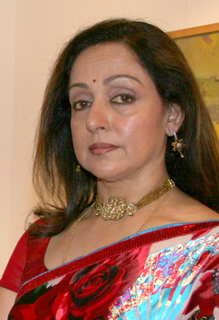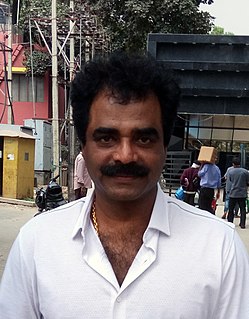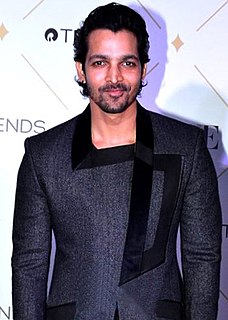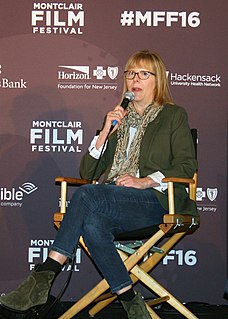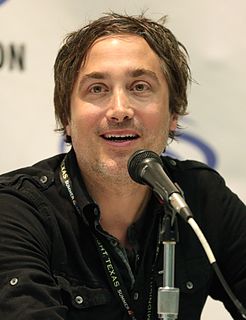A Quote by Suhasini Maniratnam
In fact my first film ran for about 400 days. It all depends on hype, marketing and publicity, which are actually more expensive than the actual film.
Related Quotes
Film is more than the twentieth-century art. It's another part of the twentieth-century mind. It's the world seen from inside. We've come to a certain point in the history of film. If a thing can be filmed, the film is implied in the thing itself. This is where we are. The twentieth century is on film. You have to ask yourself if there's anything about us more important than the fact that we're constantly on film, constantly watching ourselves.
I feel that the thing about film and particularly about TV, actually, is it's being created now. We're living in the best time so far because there are many more women writing and women directing, women producing, and people are finally catching on to the fact that women want to go and buy tickets to see female characters and more than one in a film. So I actually think it's a very fertile time to be a woman over 40.
When you go into a movie and you're surprised by it - these days with brand recognition being such an important thing and essentially trailers, the way trailers have evolved encouraging people not to see the film unless they've already seen the film which is kind of the paradox of marketing these days anytime that you enjoy genuine sense of wonder and surprise in the movies it's priceless.
I started my career with her. I was supposed to do my first film in Tamil in which she was the other heroine. The film was titled 'Vennira Aadai.' It was a love triangle, with Jayalalithaaji and I playing the hero's two love interests. But the director Sridhar removed me from the film after a few days' shooting.
I'd never read 'Prince Caspian'. I watched it and loved that film. Everybody was talking about its lack of success; its relative success in comparison to the other film. It's a great film. It deserved to do a lot better than it did. It's very difficult to make a film that will match up to the first.
That is the meaning of the Trump brand - being the boss who is so rich and so powerful he can do whatever he wants. So the way in which he ran for president was to embody that idea as fully as he possibly could with his outrageousness. I don't think he actually thought he would win. I think the original idea was purely a marketing idea. It seemed a no-lose situation, because he would get so much free publicity. And this has always been his genius - I shouldn't use the word "genius" when talking about Trump - but he's always understood the value of free publicity.
Actually, screenplays were much more detailed than what I did in the book In the book I had to invent a style for communicating what the sensation of looking at a film would be, whereas the screenplays I wrote in Paris were actual blueprints for how to do the film, with every gesture, every little movement noted in exhaustive detail.
Me and Kirby are very collaborative and it changes from film to film. The first project we worked on together, Derrida, we co-directed. The last film Outrage, I was the producer and he was the director. This film was much more of a collaboration - he is the director and I am the producer - but this is a film by both of us.
At the end of the process we called a market research company to find out whom the film was for or what was the target audience. We didn't have a lot of money to release the film, so in order for it to play in cinemas, which are dominated by films with much larger marketing budgets, we had to discover whom the film was for.
For me, there's one film at a time, and my only benchmark is that my current film should be better than my last one, and I've made sure of that. If you Google the trailer of my first film - which I request you not to - you'll see the vast change in my approach towards my profession and the slow gain of maturity in performing.
I've actually done more [music for] films than television. I love the process of writing for a film. I love that you are creating this suite of music for a film, that's all tied together sonically and thematically and hopefully people associate with the film. They all are meaningful to me in different ways.






